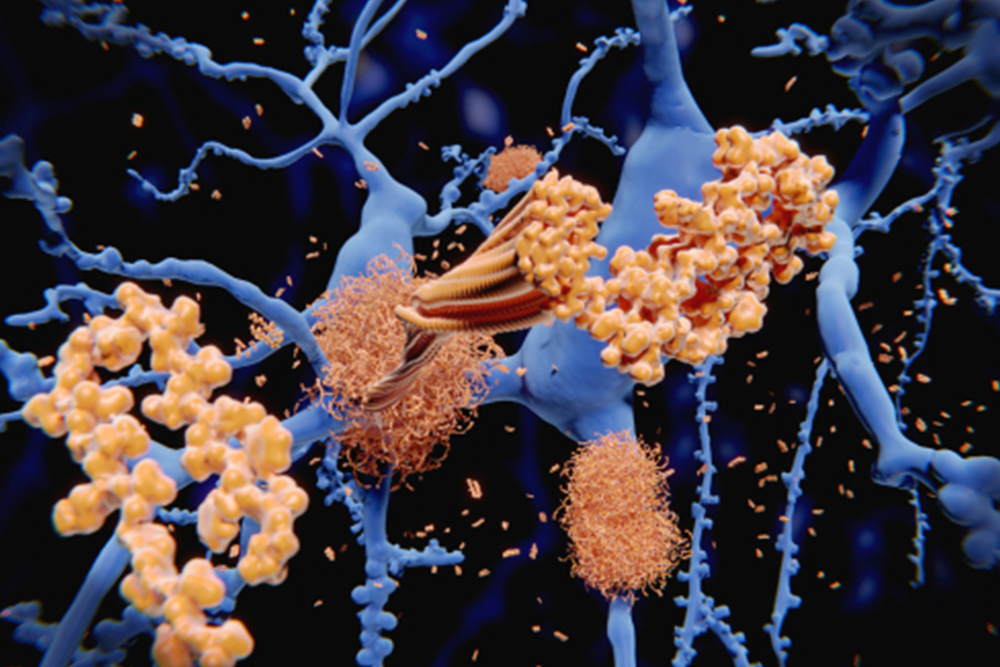Targeting Synaptic Actin: A Strategy to Combat Cognitive Decline in Alzheimer’s Disease

Synaptic dysfunction, marked by synapse loss and structural changes, is a key contributor to cognitive decline in Alzheimer’s disease (AD). This dysfunction is linked to the loss of the actin cytoskeleton, which provides structural support for synapses. The disruption of actin dynamics compromises synaptic integrity, affecting glutamatergic receptor levels, neurotransmission, and synaptic strength.
Gene Therapy: A Promising Frontier in Alzheimer’s Treatment and Disease Progression

Alzheimer’s disease (AD) remains a significant challenge due to its complex pathology and limited effectiveness of current treatments. Recent advances in gene therapy offer promising avenues for addressing AD by targeting its root causes. Studies highlight the role of genetic mutations, such as those in the PSEN-1, PSEN-2, and APP genes, in familial AD, as well as mutations in the tau and APO-E genes, which contribute to amyloid accumulation, tau hyperphosphorylation, and neurodegeneration.
Alzheimer’s Disease: Understanding Progression, Diagnosis, and the Importance of Early Intervention

Alzheimer’s disease (AD), the most common form of dementia, is marked by progressive memory loss and cognitive decline, with symptoms classified into early, middle, and late stages. Early-stage AD involves mild memory lapses and difficulties in planning, while middle-stage symptoms escalate to speech difficulties, mood fluctuations, and impaired daily functioning.
Alzheimer’s Disease: Integrated Care Essential

Alzheimer’s disease (AD) accounts for 60-80% of dementia cases and brings significant economic burdens, including $305 billion in annual US costs, projected to exceed $1.1 trillion by 2050. AD’s hallmark pathologies—amyloid beta (Aβ) plaques and neurofibrillary tangles (NFTs)—precede cognitive decline by 10-20 years.
Exploring Shared Pathways: Anti-Cancer Drugs for Alzheimer’s Disease Management

Alzheimer’s disease (AD) and cancer exhibit several shared biological features, such as angiogenesis, mitochondrial dysfunction, and proteostasis, highlighting potential therapeutic opportunities. As the prevalence of AD rises without curative treatments, the repositioning of anti-cancer drugs offers a promising strategy for AD management.
Navigating Cultural Diversity in Dementia Care: Insights From a Scoping Review

As global migration continues to rise, the older population in many countries has become increasingly culturally diverse. Although individuals with dementia from these backgrounds may prefer to avoid nursing home placement, those with higher needs and acuity often seek such care.
The Gut Microbiota and Alzheimer’s Disease

Alzheimer’s disease (AD) is a progressive neurodegenerative disorder characterized by cognitive impairments that affect memory, decision-making, communication, and other aspects of daily life. The disease is marked by the accumulation of amyloid-beta plaques and tau neurofibrillary tangles, leading to inflammation and cognitive decline. Recent studies suggest that the gut microbiota-brain axis may provide insights into AD’s onset and progression, with research showing that individuals with AD and mild cognitive impairment (MCI) have a lower diversity of gut microbiota compared with healthy individuals.
Promising Alzheimer’s Disease Treatments: Varied Results in Key Drug Trials

Recent randomized clinical trials have focused on three agents aimed at treating early Alzheimer’s disease (AD), particularly with donanemab, aducanumab, and lecanemab. These trials were primarily centered around their ability to reduce amyloid deposition as indicated by positron emission tomography (PET) imaging. Donanemab’s trial, TRAILBLAZER-ALZ, demonstrated a notable reduction in amyloid levels and a marginal improvement in the Integrated Alzheimer’s Disease Rating Scale, though this did not significantly impact most secondary cognitive measures.
Progress in Alzheimer’s Disease: Amyloid Hypothesis and New Immunotherapies

Authors of this comprehensive analysis discuss the amyloid cascade hypothesis in Alzheimer’s disease (AD), which posits that the accumulation of amyloid-β (Aβ) is a key early event leading to neurodegeneration. Evidence supporting the amyloid hypothesis includes the neurotoxic effects of various amyloid species and the high risk of cognitive decline in individuals with significant brain Aβ burden. The neurotoxicity of these amyloid species has been extensively demonstrated, including their role in instigating tau pathology, synaptic deterioration, and various cellular stresses.
Alzheimer’s Disease Treatment Breakthroughs: Emerging Therapies and Pathology Insights

This comprehensive analysis discusses Alzheimer’s disease (AD), focusing on its growing prevalence, underlying pathologies, and current treatment strategies. The review highlights significant advances in AD therapies, particularly disease-modifying therapies (DMTs). Authors note the FDA’s conditional approval of aducanumab and lecanemab, monoclonal antibodies targeting amyloid plaques, marking a new era in AD treatment. Other therapeutic approaches include a focus on tau protein pathology, immunotherapy, and small molecule drugs. Emerging strategies involve targeting neuroinflammation and insulin resistance, as well as innovative approaches like stem cell therapy.

